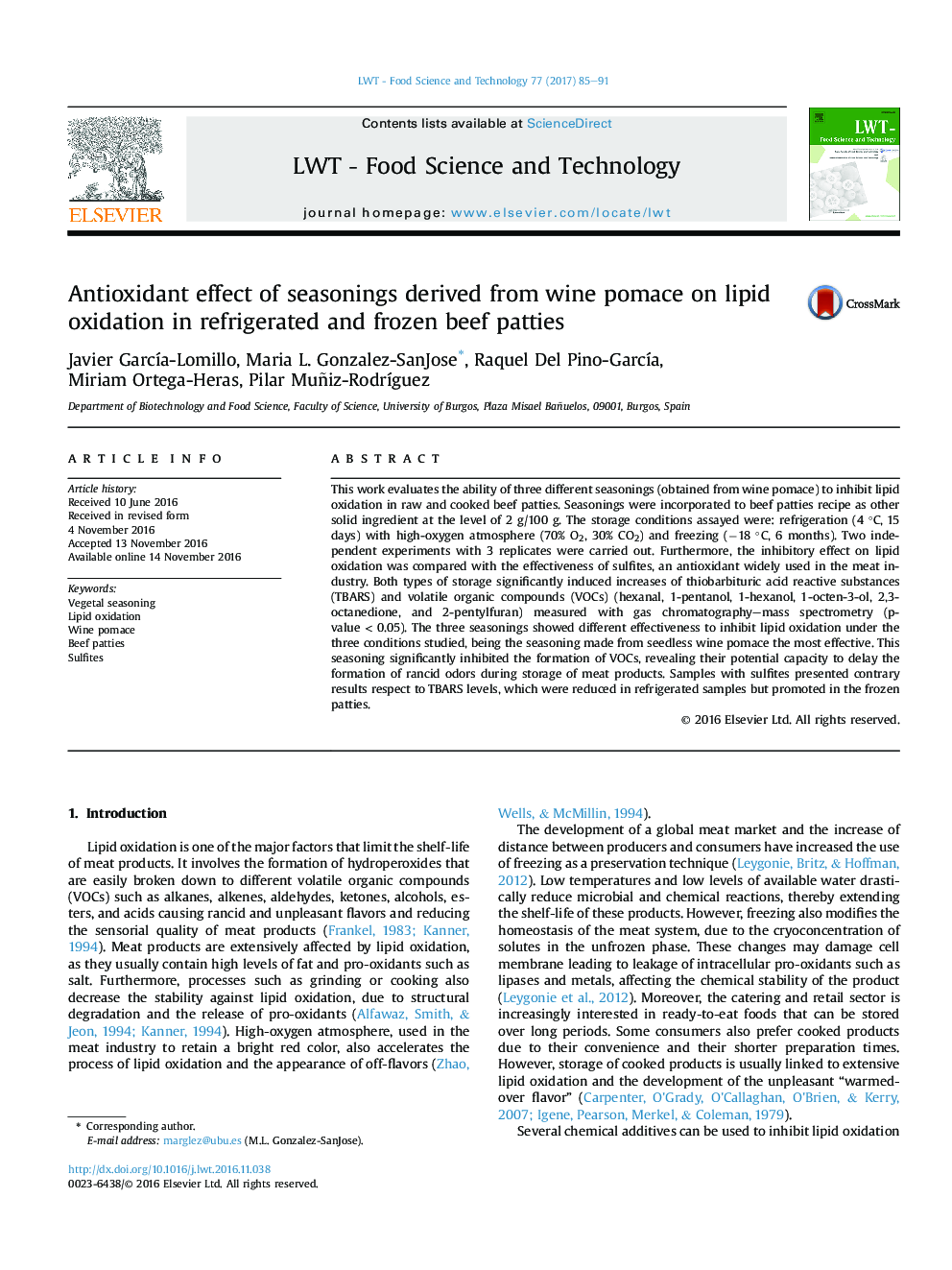| Article ID | Journal | Published Year | Pages | File Type |
|---|---|---|---|---|
| 5768841 | LWT - Food Science and Technology | 2017 | 7 Pages |
â¢Red wine pomace seasonings inhibited lipid oxidation of raw and cooked beef patties.â¢Lipid oxidation was inhibited in refrigerated (4 °C) and frozen (â18 °C) storage.â¢Seasonings were more efficient than sulfite that is widely used in meat products.â¢Seasonings are reveled as successful natural antioxidant for meat industry.â¢Seasoning from seedless red wine pomace showed the strongest antioxidant activity.
This work evaluates the ability of three different seasonings (obtained from wine pomace) to inhibit lipid oxidation in raw and cooked beef patties. Seasonings were incorporated to beef patties recipe as other solid ingredient at the level of 2 g/100 g. The storage conditions assayed were: refrigeration (4 °C, 15 days) with high-oxygen atmosphere (70% O2, 30% CO2) and freezing (â18 °C, 6 months). Two independent experiments with 3 replicates were carried out. Furthermore, the inhibitory effect on lipid oxidation was compared with the effectiveness of sulfites, an antioxidant widely used in the meat industry. Both types of storage significantly induced increases of thiobarbituric acid reactive substances (TBARS) and volatile organic compounds (VOCs) (hexanal, 1-pentanol, 1-hexanol, 1-octen-3-ol, 2,3-octanedione, and 2-pentylfuran) measured with gas chromatography-mass spectrometry (p-value < 0.05). The three seasonings showed different effectiveness to inhibit lipid oxidation under the three conditions studied, being the seasoning made from seedless wine pomace the most effective. This seasoning significantly inhibited the formation of VOCs, revealing their potential capacity to delay the formation of rancid odors during storage of meat products. Samples with sulfites presented contrary results respect to TBARS levels, which were reduced in refrigerated samples but promoted in the frozen patties.
